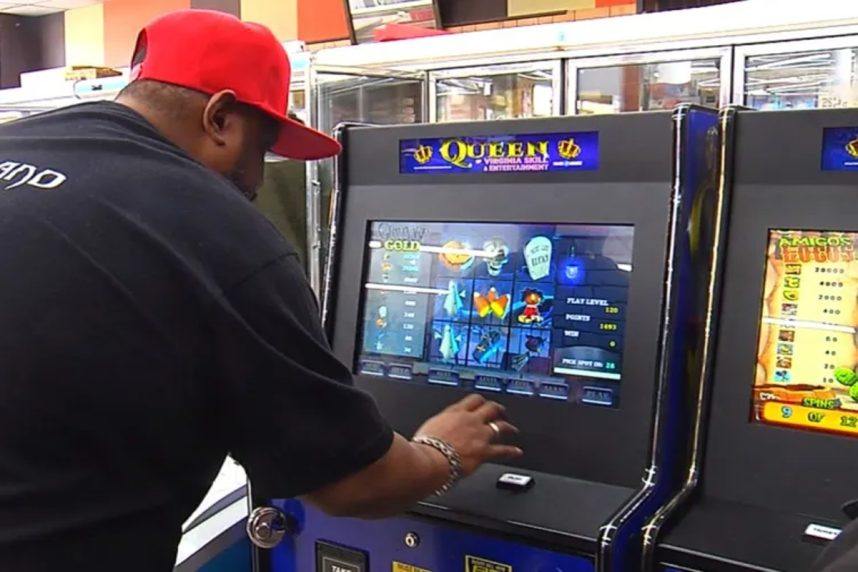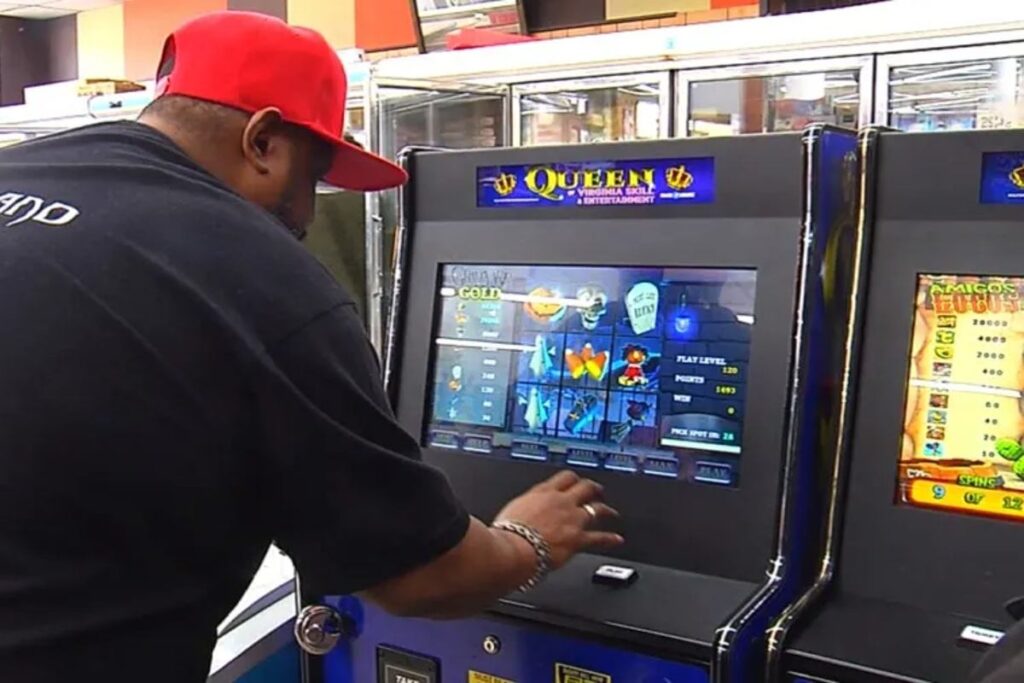Posted on: October 15, 2023, 01:29h.
Last updated on: October 15, 2023, 01:29h.
Virginia skill games are once again illegal after the state’s highest court issued a ruling overriding a lower circuit court on Friday.

Virginia lawmakers temporarily legalized the controversial gaming machines that look, sound, and operate closely to traditional slot machines found inside the state’s regulated casinos. The games differ in that a player must tap on a winning payline. A Las Vegas-style slot like the ones found on the gaming floors at Rivers Casino Portsmouth, Caesars Virginia, and Hard Rock Bristol automatically tells the gambler if the spin won and credits their bankroll.
Commonly branded “Queen of Virginia,” skill games in Virginia were regulated amid the pandemic to allow restaurants and bars, convenience stores, and other small businesses to offset some of their losses. However, the temporary allowance for the machines ended on June 30, 2021.
A lawsuit was subsequently filed against the state. The litigation was brought by Sadler Brothers Oil, which houses skill games at 13 of its gas/diesel stations.
Sadler Brothers, led by former NASCAR driver Hermie Sadler, alleges that the state’s legalization and then prohibition of the machines violates the company’s First Amendment protections.
Circuit Judge Overruled
Sadler Brothers is being represented by attorney Bill Stanley, a Republican state senator representing the city of Franklin.
Greensville County Judge Louis Lerner ruled in December 2021 that the plaintiffs’ lawsuit had merit and issued a temporary injunction that prevents law enforcement from seizing skill games. However, only businesses that had placed approved skill games and paid the state the $1,200 per machine per month fee during the one-year authorization of the terminals are supposed to have skill games during the injunction.
Lerner reasoned that the Sadler Brothers’ odds of winning its case on claims that the skill games are a protected form of free speech are good.
Whether we are residents of Emporia, Greensville, or Hampton, or in these United States of America, the First Amendment exists,” Lerner said in siding with the plaintiffs.
Despite the case not being set for trial until next month, the Virginia Supreme Court reviewed the matter on a petition from the state. It said it has the duty to consider “a circuit court’s judgment regarding a temporary injunction for an abuse of discretion.” The high court determined that Lerner’s court indeed “abused its discretion” in agreeing to issue the injunction.
Respondents are unlikely to succeed on the merits of their free speech claim,” Justices Stephen McCullough, Teresa Chafin, and Wesley Rusell Jr. wrote. “Given the significance of that conclusion in this case, Respondents are not entitled to an injunction.”
With the Virginia Supreme Court’s opinion issued, skill games are no longer legally allowed anywhere in the commonwealth and law enforcement can seize machines that remain in operation.
Georgia-based Pace-O-Matic is a leading manufacturer of the skill gaming machines found throughout Virginia and is responsible for the “Queen of Virginia” title. The company says it’s reviewing the Virginia Supreme Court ruling.
Gambling Not Protected Speech
The skill gaming industry argues in the Sadler lawsuit that the games’ themes depicting ghost stories, pirate ship battles, adventures in the old west, and medieval dragon hunting are “expressive content” and therefore protected free speech under the First Amendment.
But the Virginia Supreme Court ruled that while the games include “elements of expression,” those elements are not the subject of law enforcement seizures.
“Nothing in the statutory scheme prohibits video games from containing exactly the same themes and messages… In fact, nothing in the statutory scheme prohibits Respondents from charging customers to play games with these very themes and messages. Rather, the statutory scheme only prohibits the ability of Respondents to offer customers a chance to wager on the outcome of the games — that is, it prohibits the conduct of gambling.”



